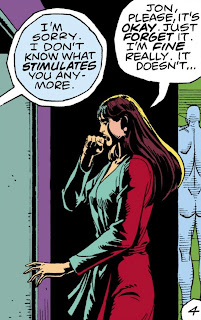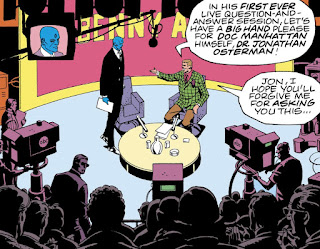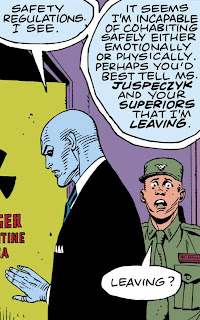I have been cursed by a witch to repeatedly travel back through time to relive every NBA draft. Fortunately, her spell sends me directly to the Utah Jazz war room on draft night and all the executives magically know I’m from the future and will do whatever I say. Unfortunately, the curse prevents me from seeing how my advice altered the future, as I am sent back to the previous year as soon as draft night ends.
June 26, 2014 – Barclays Center, New York
Previous season:
In his final year as head coach of the Jazz, Tyrone Corbin guided Utah to one of its worst seasons in franchise history. Unfortunately, a 25-57 record in 2013-14 only earned Utah the fifth pick in the draft. Two weeks before this crucial draft, the rebuilding Jazz allowed Corbin’s contract to expire and hired Quin Snyder as the new coach. He inherited a young, yet intriguing roster of Gordon Hayward, Alec Burks, Derrick Favors, Enes Kanter and rookies Trey Burke and Rudy Gobert.
The draft:
General Manager Dennis Lindsey became enamored with a lanky, versatile guard from Australia named Dante Exum, who was selected fifth overall.
The Jazz also owned the 23rd pick, thanks to the 2013 trade that sent Andre Iguodala to Golden State. Utah used that pick on Rodney Hood, a shooting guard from Duke.
In the second round, Lindsey traded the 35th pick to Memphis for a 2016 second-round pick. The Grizzlies took a power forward from Tennessee named Jarnell Stokes.
Analysis:
Dante Exum was one of the worst picks in Jazz history. He played all 82 games his rookie year, but then tore his ACL in the offseason and had to sit out the entire next season. Further injuries to his shoulder, ankle and knee kept him perpetually sidelined. That, and his play. Snyder really hated Exum and would often yank him off the court immediately after a turnover or missed assignment. He was eventually traded to Cleveland for Jordan Clarkson, who won Sixth Man of the Year for the Jazz. So something positive eventually transpired from the Exum pick, but I know we can get something much better at this position.
The problem with having such a high draft pick is there are so many great options. Do I go with Defensive Player of the Year Marcus Smart? Or All-Stars Julius Randle or Zach LaVine? Or … what’s this? Two-time MVP Nikola Jokic?! Wow. Obviously I have to take him, right? Well … here’s the thing. Jokic wasn’t drafted until the 41st pick. So I think I’ll be safe to wait until the 35th pick to grab him. Meaning I can have some fun at No. 5 and No. 23.
Lindsey grabbing Exum at No. 5 indicates to me that the Jazz already had little faith in rookie Trey Burke being the point guard of the future. So I’m going to recommend Smart at this spot. Snyder was very focused on defense when he came to Utah, and I imagine he would have loved to have a lockdown defender in the backcourt making life easier for Favors and Gobert down low.
Rodney Hood wasn’t a terrible pick for the Jazz. He had three and half marginally decent years for the Jazz. But he always seemed to be hurt or sick and just wasn’t as consistent as Utah needed him to be. He was eventually traded for Jae Crowder and has been bouncing around the league ever since.
My gut reaction is to replace Hood with Bogdan Bogdanovic, who seems to be everything the Jazz envisioned with Hood. But he stayed overseas for a couple of years after being drafted, and I’m not sure if Utah would have been patient enough for that (or if they could have convinced him to come over earlier). Joe Harris is a good shooter, but probably not the dynamic scorer the Jazz were hoping for. Spencer Dinwiddie could have been a solid pick, as well as Clint Capela, Kyle Anderson and Jerami Grant if I’m willing to think outside the box. But I really do want to give Utah some offense in the backcourt, and my favorite option in this draft is Jordan Clarkson. He is a bit of a streaky shooter, but he was Sixth Man of Year on the team with the best record in the regular season, and he’s currently (2022-23) playing the best basketball of his career. So I will take Clarkson, but not at No. 23. This pick goes to Jokic.
Jazz fans — and the front office — undoubtedly would have been scratching their heads after I added Jokic to a front court that already included Favors, Kanter and Gobert. But I would have explained to them that Kanter is pretty much worthless and needs to be dumped as quick as possible, and Favors would be a dependable backup. And I would undoubtedly have to convince myself that a Jokic and Gobert could coexist in the same lineup and still develop into the MVP and Defensive Player of the Year that I know they’re capable of. There’s a strong possibility I could be destroying two Hall of Fame careers by overcrowding them too soon. But I still want to risk it.
Jarnell Stokes only played in 28 NBA games over three seasons. And that 2016 second-round pick turned into Joel Bolomboy. I say ignore the trade and draft Clarkson, knowing that he has the capability to thrive under Snyder.
My advice:
1. Use the 5th pick on Marcus Smart.
2. Use the 23rd pick on Nikola Jokic.
3. Keep the 35th pick and use it on Jordan Clarkson.
Well, I just added a Defensive Player of the Year, a two-time MVP and a Sixth Man of the Year to the Utah Jazz. That’s definitely my best draft night so far. Did I create the foundation for a multiple championship dynasty? Or did I make a messy logjam that Quin Snyder was unable to sort out? I’ll never know. The witch’s curse has abruptly sent me back to the 2013 draft, and I get to do it all over again.



































































